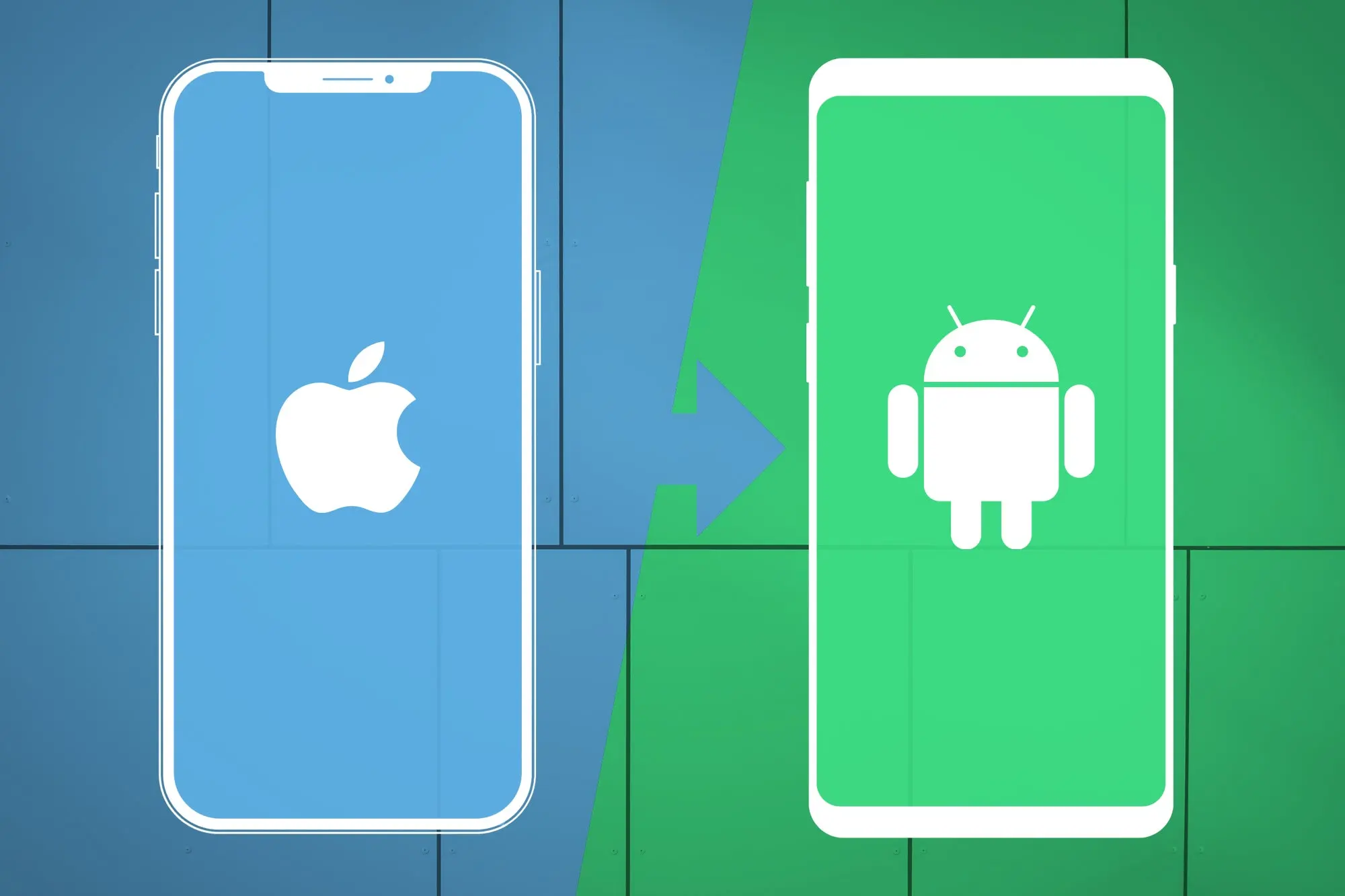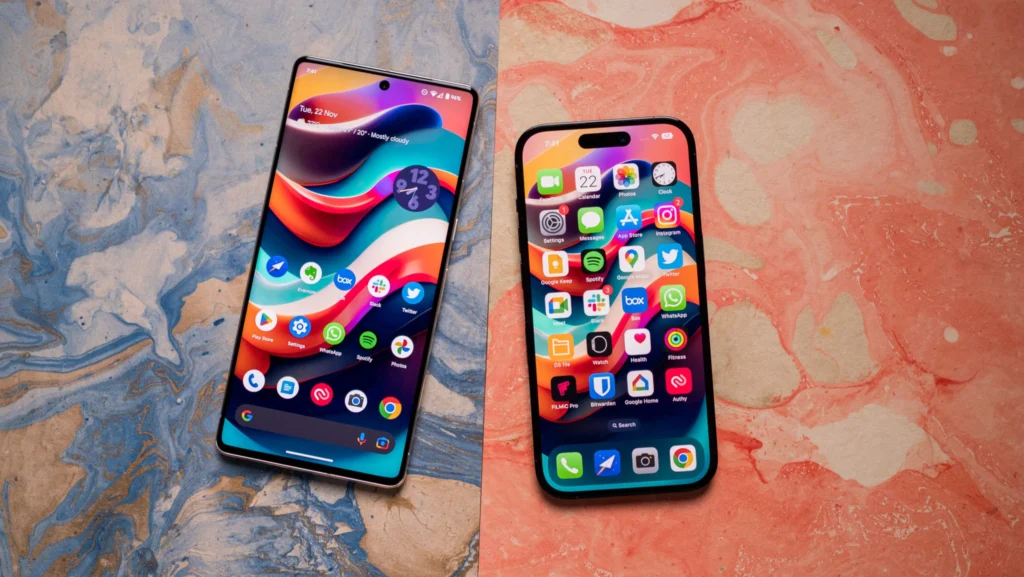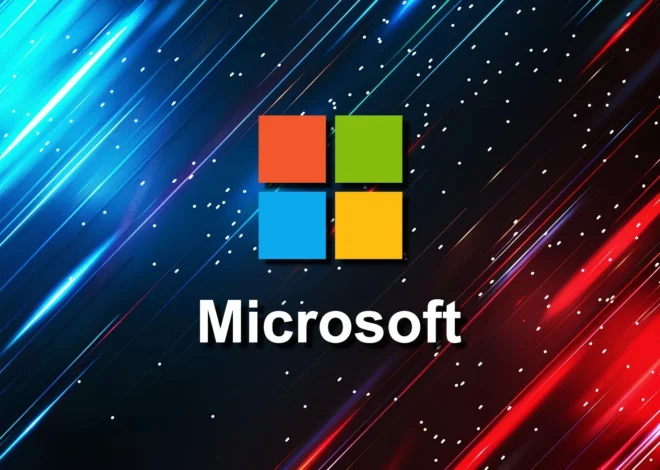
Is switching from iPhone to Android worth it?
Switching from an iPhone to an Android device is a question many smartphone users contemplate, especially as Android flagships continue to innovate and close the gap in performance and features. Both platforms have their strengths and weaknesses, and the choice ultimately depends on your priorities and usage patterns. Here’s a detailed look at whether making the switch is worth it.

1. iPhone’s Strengths
iPhones are renowned for their impeccable build quality and software stability. Apple ensures that both the hardware and software work seamlessly together, providing a smooth and reliable experience. The cameras, especially for video recording, are exceptional. Whether you’re capturing cinematic moments or everyday snippets, the consistency and ease of use of iPhone cameras are unmatched.
Battery life has significantly improved in recent iPhones, with both Pro and non-Pro variants offering reliable endurance. Additionally, iPhones benefit from Apple’s long software support. Even older devices receive iOS updates for several years, ensuring security and feature improvements.
For users already within Apple’s ecosystem using a Mac, iPad, or Apple Watch, the integration is a significant advantage. Features like AirDrop, Handoff, and Continuity make tasks like file sharing, messaging, and even phone calls effortless. This ecosystem synergy is one of the reasons many hesitate to switch from an iPhone.
2. Why Android is Becoming a Strong Contender
Android flagships have made tremendous strides in recent years. The introduction of the Snapdragon 8 Gen 3 and Snapdragon 8 Elite chips has significantly narrowed the performance gap with Apple’s Bionic chips. In some cases, these processors even outperform Apple’s offerings, particularly in multitasking and AI-driven applications.
Camera technology on Android devices has also evolved rapidly. Companies are experimenting with zoom capabilities, night photography, and custom modes, offering a level of versatility not often seen in iPhones. Many Android phones now feature larger batteries, with innovations like silicon-carbon technology providing even better longevity.
Android is also the leader in customization. From widgets to themes, app layouts, and even system-level tweaks, Android allows users to personalize their experience in ways iOS simply cannot match. AI features, which are increasingly integrated into Android, add another layer of innovation, making the platform even more appealing.
Up until last year, iPhones were the go-to devices for mobile gaming, celebrated for their smooth performance and reliable hardware-software synergy. However, this year marks a significant shift. Android flagships are now excelling in gaming, particularly in demanding titles like PUBG Mobile and Call of Duty: Mobile, where high FPS (frames per second) is critical. Thanks to advancements like vapor chamber cooling systems, Android devices can maintain consistent FPS for extended periods without overheating or dropping brightness, a common issue with iPhones during prolonged gaming sessions.
Furthermore, software optimizations for gaming on Android have significantly improved. Features like AI-powered upscaling, dedicated gaming modes, and enhanced graphics processing now rival or surpass those on iOS. These innovations, coupled with better thermal management, have made Android phones the preferred choice for many gamers in 2024.
3. Software and App Ecosystems
Apple’s App Store is known for its strict quality control, ensuring reliable and secure apps. However, the Google Play Store offers a larger selection of apps and supports more experimental projects. The ability to sideload apps on Android is a major advantage for users who want flexibility in their software choices.
While Apple’s ecosystem is tightly integrated, Android has also improved in this area. Google’s suite of apps: Gmail, Google Photos, Google Drive, and more works seamlessly across devices. Samsung’s Galaxy ecosystem, with features like DeX mode for a desktop-like experience, offers unique benefits that rival Apple’s ecosystem.
4. Challenges of Switching
For long-time iPhone users, switching to Android may involve some hurdles. Migrating data like iMessages, photos, and app purchases can be cumbersome. Features like AirDrop, FaceTime, and iCloud are difficult to replicate, though Android alternatives like Nearby Share, Google Duo, and Google Drive provide viable options.
Another consideration is learning the nuances of Android. While the platform offers more flexibility, it can also feel overwhelming for users accustomed to the simplicity of iOS.
5. Final Verdict
If you value stability, a polished ecosystem, and seamless integration with other Apple devices, sticking with an iPhone might be the better choice. However, if you crave customization, advanced features, and cutting-edge hardware, Android is hard to ignore.
For users looking to experiment, Android flagships in 2024 have proven to be more than capable competitors, offering better performance, versatile cameras, and significant advancements in AI and battery technology. Whether you choose to switch depends on your priorities, but one thing is clear—Android has never been more compelling.



